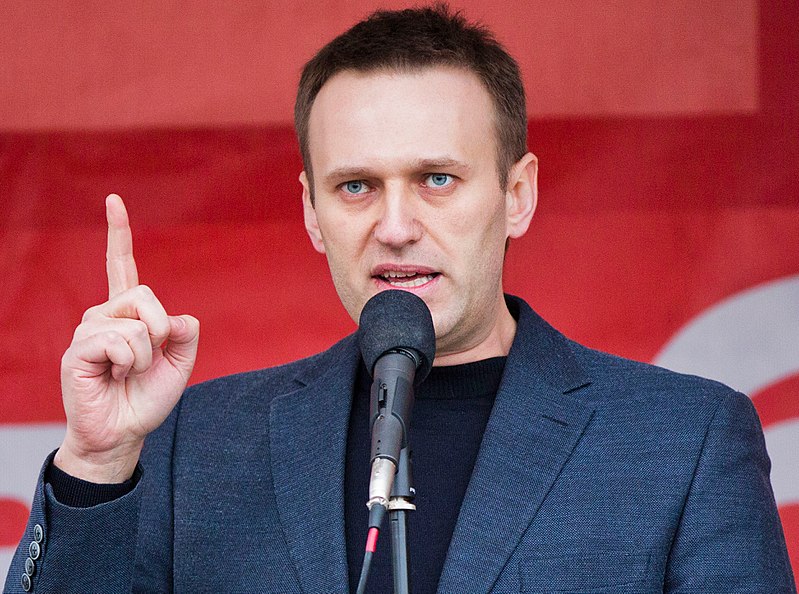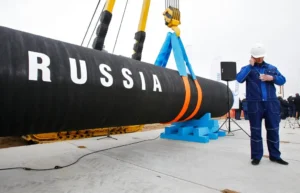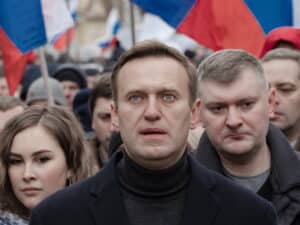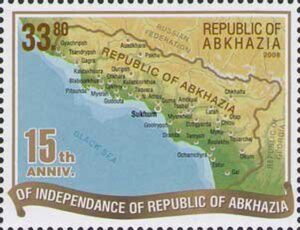Even without his name on the ballot, Alexei Navalny has become one of the central figures of the Russian presidential election on March 18th. The opposition activist was barred from the election last December over a suspended sentence in a criminal case that his supporters say is politically motivated. Navalny in reaction called for protests and a boycott of the elections. On February 22 this led to the arrest of the opposition leader for several hours. He was charged for repeated violations of public assembly laws, facing a thirty day sentence in prison.
The arrest followed a number of moves by the Russian government against Navalny’s movement. His chief of staff Leonid Volkov and head of his Anticorruption Foundation (FBK) , Roman Rubanov, both face jail sentences, a month before the election. The FBK recently published a video in which the accused Deputy Prime Minister Sergei Prikhodko of accepting bribes. In this hostile back and forth, the Kremlin is trying to silence a dangerous critic.
Government repression With no chance of participating in the presidential election, Navalny has focused on undermining the credibility of Putin. Navalny’s followers, like economy expert and Navalny’s ally Vladimir Milov, claim that the key lies in debunking Putin’s broad mandate. ‘’Putin will get a formal victory, but we want to make it a pyrrhic victory. We want to use the election to show that he doesn’t have as much support as he claims’’. By calling for a boycott of the election and creating a broad network of observers that will monitor the electoral process, the movement hopes that Russians will see the corrupt system in which they find themselves.
The Kremlin has been frustrated with these kinds of actions by Navalny and his followers for years. For a long time Moscow has undermined the movement by calling Navalny a trouble maker. On several occasions the opposition leader was accused of being a Nazi by Government controlled news outlets. Several members of the movement have been arrested over the years for alleged illegal protests and fraud. The latest series of arrests seems to be different. With the three men facing jail sentences up to thirty days, it is hard to ignore that this will coincide with the last campaign month, increasing the likelihood that the senior members of the movement will be behind bars during the election.
In the meantime Russian news outlets barely report on Navalny and avoid even mentioning his name at all. Instead they focus on the other candidates. Especially Presidential candidate for the Communist Party, Pavel Grudinin and his campaign, receive a lot of media attention. According to Tatiana Stanovaya, all this points to a well-organized campaign by the Kremlin to undermine Navalny.
Rybkagate The latest arrests can be seen as part of Navalny’s movements’ struggle against the Russian authorities. In February the Anticorruption Foundation (FBK) accused Deputy Prime Minister Sergei Prikhodko of accepting bribes. The alleged scandal quickly received the name Rybkagate, referring to the involved call girl Nastya Rybka. The FBK conducted a research into Rybka, after an incident at their headquarters involving multiple prostitutes. They discovered that Rybka had a relationship with Russian oligarch Oleg Deripaska. She talks in detail about this affair in a recently published book and on her Instagram account. Using this material, the FBK found footage of several conversations between Deripaska and, as it appears, Deputy Prime Minister Sergei Prikhodko, on Deripaska’s yacht in 2016. During that vacation several conversations between the two men were recorded by Rybka for her Instagram. According to Navalny, there are multiple instances that could prove that Prikhodko is bribed by Deripaska.
If the allegations are true, the relationship between the deputy Prime Minister and the oligarch could be troubling. Deripaska is often described as being among President Vladimir Putin’s favorite industrialists. Currently the businessman is in the scope of the ‘Russia Probe’ in the United States for employing former Trump Campaign manager Paul Manafort. Deputy Prime Minister Prikhodko on the other hand is one of the Kremlin’s most influential strongmen. As a diplomat who has been in the high ranks of the Russian government since the late 1990’s , he is often credited for his influence on Russia’s foreign policy. The dealings between the two men could show how Russia’s senior leadership operates, and presents another example of thecorruption and cronyism that many critics speak about.
The video detailing the allegations was immediately banned from the internet in Russia by the State Watchdog Roskomnadzor. The organization has called the accusation by Navalny false and ‘’mixing the facts’’. Major Russian newspapers avoided to report on the events after the exposé, in what Navalny called ‘’ [a] wall of silence’’.
The movement Nonetheless Navalny’s movement is significant. As part of non-systemic opposition it operates mainly outside the Russian political system. Under the current Russian laws on political parties, it is difficult for the movement to enter elections.
Navalny is often portrayed by the Russian media as a far-right supporter. The Kremlin hasn’t created this narrative from thin air. Navalny has a past of controversial remarks on Russian nationalism and migration. According to its official website, his movement advocates a number of anti-migration measures. Or as Leonid Volkov put it ‘’we would be moderate Republicans’’.
In the West Navalny is more known for his Anticorruption Foundation. The organization has published many exposé videos on social media in which corruption cases are explained. One documentary, He Is Not Dimon to You, accused Premier Minister and former President Dmitry Medvedev of acquiring enormous wealth through dubious means. By using the FBK and his social media network, Navalny will remain the strong Putin critic that the Kremlin will have to face one way or another.
Sources: Business InsiderThe Daily BeastHuman Rights WatchPoliticoReutersNew York Times



